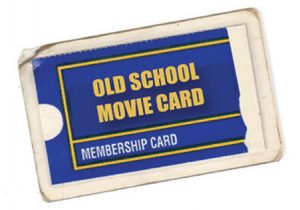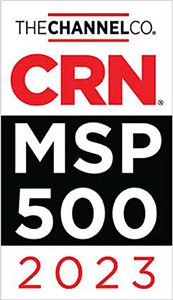Did you have a laminated Blockbuster card in your wallet back in the day? It was a ticket to the latest entertainment options for you and your family. If you did have a Blockbuster card, you’ve likely shared a “back in the day” monologue. That story either earns you a groan and eye roll from younger folks or an eager friend to reminisce about the tragedy of your favorite movie being gone from Blockbuster’s shelves.
 My Blockbuster card, barcode and all, lived in my wallet many years ago, sitting next to my pager, which was a lifeline for Computerease clients to get a hold of me. I’ve been in this business a LONG time. In fact, Computerease was founded in 1984, one year before Blockbuster was established in 1985!
My Blockbuster card, barcode and all, lived in my wallet many years ago, sitting next to my pager, which was a lifeline for Computerease clients to get a hold of me. I’ve been in this business a LONG time. In fact, Computerease was founded in 1984, one year before Blockbuster was established in 1985!
There’s one thing that Blockbuster and Computerease have in common. Both technology and media are rapidly changing industries where businesses come and go with a blink of an eye. I’m very thankful that Computerease has a better track record than Blockbuster.
At its height in 2004, Blockbuster had over 9,000 stores across the globe with an annual revenue of $5.9 billion. They were untouchable to their competitors, but things began to change in the early 2000s when Netflix came into play. A changing industry challenged the huge corporate structure of Blockbuster.
In learning more about Blockbuster, I was surprised to discover that they had a chance to buy Netflix for a cool $50 million in 2000. Their leadership teams decided that it wasn’t a wise decision, something that would come back to haunt them only a few years later. Ultimately, Blockbuster couldn’t compete with Netflix mailed DVDs and streaming services. They filed for bankruptcy protection in 2010. Their reign was coming to an end.
Blockbuster almost completely disappeared by 2014. The only trace of Blockbuster’s business is one remaining franchise store open in Bend, Oregon. It’s earned a cult-like status as the last Blockbuster, launched into notoriety from a recent documentary available to stream on Netflix. You can’t miss the irony in how things worked out.
Netflix CEO Mark Randolph was a speaker at an industry conference I attended a few years ago. He shared details of the fateful meeting discussing the Netflix sale with Blockbuster’s then-CEO John Antioco. He spoke about the difficult times for Netflix before streaming existed and their revenue depended on mailed DVDs. Netflix’s future was hanging in the balance. They were losing money fast and the Blockbuster deal could be the financial lifeline they desperately needed.
Randolph described Antioco’s attitude during the meeting as arrogant and dismissive. He saw the possibility of Netflix’s future as a complete joke. The Blockbuster CEO just about laughed in their face saying, “The dot-com hysteria is completely overblown.” He went on to say that online businesses weren’t sustainable and were doomed to fail.
Obviously, John Antioco was wrong. Digital media companies have replaced brick and mortar video stores. Blockbuster’s ultimate downfalls were arrogance and inflexibility to adapt to the changing industry and customer demands. In contrast, Netflix rebounded from a difficult time and continually adapted to stay relevant.
If there’s one guarantee in this world, it’s that things will change. And they will change quickly. In our 38 years of business, we’ve transitioned from Commodore 64 computers, to building customer computers for businesses needing their first computer ever, to now managing thousands of business computers remotely. Our clients trust us to take care of every aspect of their technology, from their networks, backups, remote workforce, VoIP phones, and cybersecurity.
As an IT company and small businessowner, I know that there’s also always room for improvement. We’re following the path of businesses like Netflix that change and adapt as needed. I can’t imagine taking the arrogant and inflexible attitude of Blockbuster toward a changing industry and customer demands. We never would’ve survived through all the changes in the tech industry!
If you don’t keep moving forward, your business will quickly fade into nostalgia with all the Blockbusters of the world. If Blockbuster executives were humble enough to listen to customers and adapt to a changing industry, they might’ve bought Netflix. The fate of their company would’ve been very different. The iconic yellow and blue logo might be streaming into millions of homes instead of the large red Netflix N.




